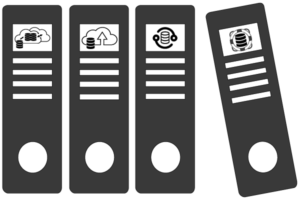Documentation

CloudBasic:
- What is CloudBasic:
- Most common scenarios:
- Using CloudBasic:
- Prerequisites
- Limitations
- Supported MS SQL Server Versions
- Deployment Guide (PDF)
- Release Notes
- Get Started - Configure Multi-AZ or Multi-AR with Readable Replicas
- SQL Server to SQL Server Replication
- SQL Server to Redshift
- SQL Server to S3 Data Lake
- Monitor a Continuous Copy Relationship
- Promote RDS/SQL Server Read-Replica to Primary
- Terminate a Continuous Copy Relationship
- Logs and Errors
- Warnings
- How To Upgrade
- Updating your version
- CloudBasic advanced features:
- Working in AWS:
- RDS Assemblies Activation Test
- RDS/SQL Server User Management
- RDS/SQL Server Backup and restore from/to S3
- RDS/SQL Server Snapshot-Restore
- VPN/VPC - Replication over VPN/VPC
- Compare Instance Types (Features & Support Details)
- How To Extend the Default Data Storage
- Attach IAM Role to EC2 and Redshift Cluster
- Deployment guide:
- Additional topics:
API Documentation:
- Default API Configuration
- Instance Management:
- User Management:
- Replication Management:
- CreateReplication
- CreateAllReplication
- GetReplicationsList
- ReplicationStatus
- AlterReplication
- DeleteReplication
- StartReplicationService
- StopReplicationService
- AnalyzeReplication
- CreateRedshiftReplication
- AlterRedshiftReplication
- DeleteRedshiftReplication
- CreateS3Replication
- AlterS3Replication
- DeleteS3Replication
- GetLogs
- RebuildDbReplicaIndexes
- RebuildDbReplicaIndexesStatus
- ReseedTable
- ReseedTableStatus
- Multi-AZ HA Cluster Management:
- Lambda/node.js Example:
- Disaster Recovery & No-Downtime Migration Management
- Service Management:
Limitations - Manual Assessment Scripts
Ensure to execute below scripts against the actual database, Not against the master database.
Non-AzureSQL
(1) Determine SQL Server version - CDC is supported in Standard and Enterprise editions. - List of tables result set, indicating whether tables have PKs, Unique Indexes, is expected. SELECT @@version;
AzureSQL
(1) Determine Azure SQL Server version and tier (CDC is supported in Standard S3 and above) SELECT @@version; SELECT * FROM sys.database_service_objectives
All SQL Server Editions
(2) List tables indicating the most common limitations-related properties
SELECT DISTINCT
t.object_id
,schema_name(schema_id) as table_schema
,t.name as table_name
,p.rows AS row_counts
, OBJECTPROPERTY(t.object_id,'TableHasPrimaryKey') as has_primary_key
, (
CASE WHEN (SELECT COUNT(*) FROM sys.indexes ix WITH (NOLOCK) WHERE t.object_id=ix.object_id AND ix.is_unique=1) > 0 THEN 1 ELSE 0 END
) as has_unique_index
, (
CASE WHEN (SELECT COUNT(*) FROM sys.indexes ix WITH (NOLOCK) WHERE t.object_id=ix.object_id AND ix.type IN(5,6) ) > 0 THEN 1 ELSE 0 END
) as has_column_store_index
FROM sys.tables t WITH (NOLOCK)
INNER JOIN sys.indexes i WITH (NOLOCK) ON t.object_id = i.object_id
INNER JOIN sys.partitions p WITH (NOLOCK) ON i.object_id = p.object_id AND i.index_id = p.index_id
INNER JOIN sys.allocation_units a WITH (NOLOCK) ON p.partition_id = a.container_id
WHERE t.is_ms_shipped = 0 AND t.NAME NOT IN ('sysdiagrams','dtproperties')
All SQL Server Editions
(3) List tables with timestamp Primary Keys (PKs) SELECT DISTINCT schema_name(t.schema_id) table_schema, t.name as table_name FROM sys.tables t WITH (NOLOCK) INNER JOIN sys.indexes pk WITH (NOLOCK) ON t.object_id = pk.object_id AND pk.is_primary_key = 1 INNER JOIN sys.index_columns ic WITH (NOLOCK) ON ic.object_id = pk.object_id AND ic.index_id = pk.index_id INNER JOIN sys.columns col WITH (NOLOCK) ON pk.object_id = col.object_id AND col.column_id = ic.column_id INNER JOIN sys.types y WITH (NOLOCK) ON y.user_type_id = col.user_type_id WHERE y.name = 'timestamp'
All SQL Server Editions
(4) List tables with timestamp columns (any column, not only timestamp PKs) SELECT DISTINCT schema_name(t.schema_id) table_schema, t.name as table_name FROM sys.tables t WITH (NOLOCK) INNER JOIN sys.columns col WITH (NOLOCK) ON t.object_id = col.object_id INNER JOIN sys.types y WITH (NOLOCK) ON y.user_type_id = col.user_type_id WHERE y.name = 'timestamp'

